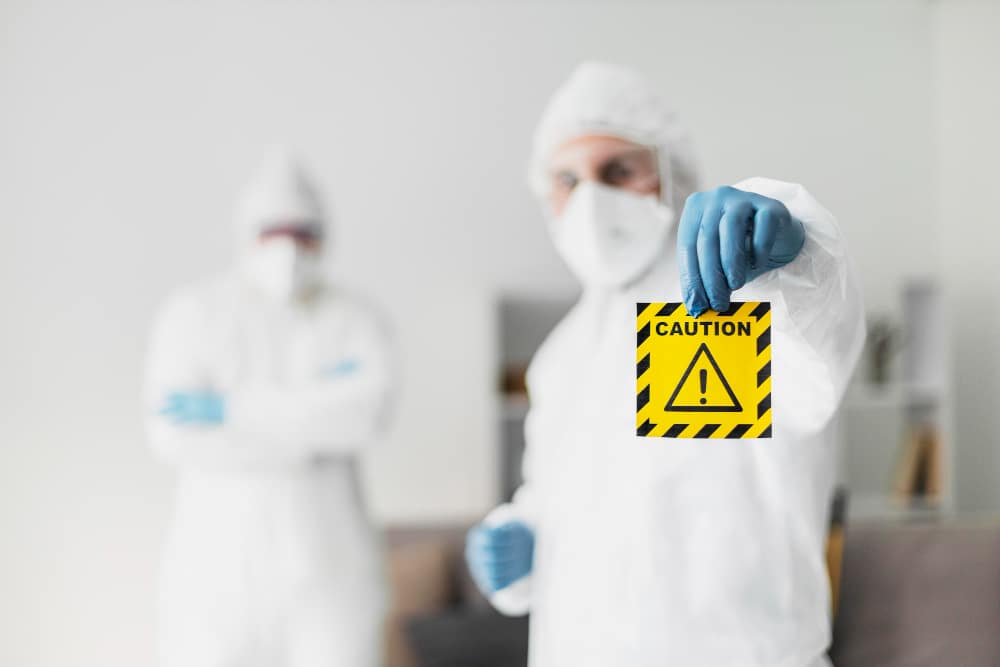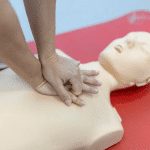Description
Coronavirus Awareness and Infection Control Training
Course Description:
The Coronavirus Awareness and Infection Control Info course equips participants with comprehensive knowledge and practical skills to manage the COVID-19 pandemic. Gain awareness of the virus, its transmission, and effective infection control measures. Understand government legislation, self-isolation procedures, and preventive actions.
- Developed by professionals
- Accredited by The CPD Accreditation Group
- 100% online, learn at your own time and pace
- Translates into over 100 different languages
- Instant certificate downloaded
Course Outline:
-
Introduction to Infection Control Training Course
- Definition and importance of infection control
- Key principles and goals of infection control
- Role of infection control in preventing the spread of COVID-19
-
Government Legislation and Guidelines
- Identifying relevant government legislation and regulations related to COVID-19
- Understanding the role of guidelines in infection control
- Compliance with regulations and public health measures
-
Causes and Effects of Coronavirus
- Modes of transmission and the chain of infection
- Recognizing common symptoms and health effects of COVID-19
- Management strategies and treatment options
-
Self-Isolation Procedures
- Understanding the importance of self-isolation in preventing transmission
- Guidelines and protocols for self-isolation
- Practical tips for managing self-isolation effectively
- Mental health considerations during isolation
-
Understanding the Chain of Infection
- Exploring the chain of infection and its components
- Identifying the different stages of infection transmission
- Breakpoints in the chain and strategies to interrupt transmission
-
Types of Germs and Infection
- Overview of different types of germs (viruses, bacteria, etc.)
- Understanding viral infections, bacterial infections, and other pathogens
- Common infections associated with COVID-19
-
Importance of Infection Control and Healthcare-Associated Infections (HCAIs)
- Significance of infection control in healthcare settings
- Understanding healthcare-associated infections (HCAIs) and their impact
- Measures to prevent and manage HCAIs in healthcare facilities
- Role of individuals in promoting infection control and preventing HCAIs
-
Hand Hygiene to WHO Standards
- Proper handwashing techniques following WHO guidelines.
- Effective use of hand sanitizers and hand hygiene products.
- Importance of hand hygiene in preventing the spread of COVID-19.
-
Strategies to Prevent the Spread of Coronavirus
- Individual responsibilities in preventing the spread of COVID-19.
- Social distancing measures and minimizing close contacts.
- Importance of masks and proper mask usage.
- Following public health guidelines and participating in vaccination efforts.
-
Recap and Practical Application
- Reviewing key concepts related to infection control and COVID-19 prevention
- Applying infection control measures in different settings (home, workplace, public spaces)
- Developing personal action plans for infection control and prevention
Frequently Asked Questions
What is infection control training course about?
An infection control training course teaches you how to prevent the spread of infections. It covers topics like hand hygiene, using protective equipment, cleaning, and staying safe in healthcare settings.
You’ll learn how to keep yourself and others safe from getting sick.
How long infection control training course last?
Our infection control training course offers a certificate that does not expire. While it is not mandatory to retake the course, it is recommended to refresh your staff’s knowledge annually.
This ensures they stay updated on infection control procedures, legislation, and industry best practices. Keeping your staff’s knowledge current is important for regulatory bodies like CQC, HSE, or OFSTED.
What are the basic goals of Infection Control?
The basic goals of infection control are:
- Preventing the spread of infections: The primary objective is to prevent the transmission of infectious diseases from one person to another, minimizing the risk of outbreaks and protecting individuals in various settings.
- Protecting individuals and communities: Infection control measures aim to safeguard the health and well-being of individuals, including patients, healthcare workers, and the general public, by implementing preventive strategies and protocols.
- Reducing healthcare-associated infections: In healthcare settings, the goal is to minimize the occurrence of healthcare-associated infections (HAIs) through proper hygiene practices, sterilization, disinfection, and other preventive measures.
- Promoting safe environments: Infection control efforts focus on creating and maintaining safe environments, such as hospitals, clinics, schools, workplaces, and public spaces, where the risk of infections is minimized.
- Educating and empowering individuals: Providing education and training on infection control measures helps individuals develop the knowledge and skills needed to protect themselves and others from infections.
- Adhering to regulations and guidelines: Infection control aims to ensure compliance with local, national, and international regulations, guidelines, and best practices to maintain consistent standards of infection prevention and control.
By achieving these goals, infection control efforts contribute to reducing the burden of infectious diseases, improving public health outcomes, and creating safer and healthier environments for everyone.
What do you learn on infection control training?
Infection control training helps you learn important ways to stop infections from spreading. You’ll discover how to keep your hands clean, cover your mouth when you cough or sneeze, and use protective gear when needed.
The training also teaches you about different diseases and how to stay safe from them. By following these practices, you can help protect yourself, others, and your community from getting sick. review our course outline





